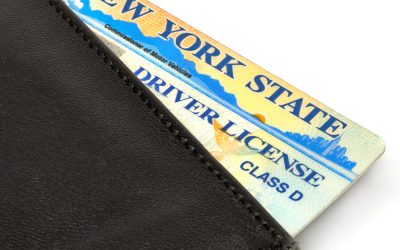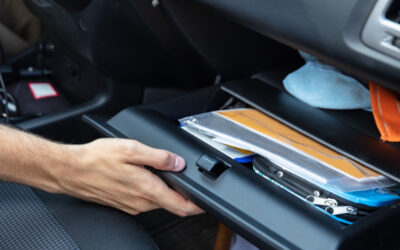
Among the most important questions to ask about DUI diversion programs is who qualifies and how these programs work. A DUI diversion program lets some people complete treatment, classes, or community service instead of receiving a criminal conviction.
In California, though, most DUI defendants—even first-time offenders—do not qualify because state law blocks judges from using diversion for DUI charges. Only a small group, such as qualifying military service members or veterans, may be eligible.
You can still explore whether any options apply in your county. Below are eight questions you should ask about DUI diversion programs and how a Los Angeles DUI lawyer can guide you through your choices.
Questions to Ask About DUI Diversion Programs in California
If you were arrested on a charge of driving under the influence, you may wonder whether you can enter a diversion program or a similar option. The questions below will explain how these programs work, who qualifies, and what to expect.
Each answer is based on California law and general court practices.
1. Am I Eligible for Any DUI Diversion Program Under California Law?
Eligibility for a DUI diversion program in California depends on your record, the details of your case, and local court policies.
In most counties, standard DUI cases are not eligible for general diversion under Penal Code § 1001.95. This is because California Vehicle Code § 23640 bars judges from dismissing or staying DUI charges.
Ask your lawyer:
- Has any court in this county approved a DUI diversion before?
- Does my first-offense status or blood alcohol concentration (BAC) level make me eligible?
- Could a military or veteran diversion program apply?
2. What Are the Terms if I’m Placed in a Diversion or Alternative Program?
If you qualify for a special diversion (such as a military diversion program), the judge will set conditions. You might have to attend alcohol education classes, join counseling sessions, or complete community service.
Some programs also require you to stay alcohol-free and check in with the court.
Ask your lawyer:
- How long does the program last?
- What classes or monitoring are required?
- What happens if I miss a class or fail a test?
3. What Happens if I Complete the Program?
When someone finishes all requirements under Penal Code § 1001.95, the court must dismiss the case. However, because DUI charges are usually excluded from this kind of diversion, even completing education or treatment might not erase the conviction.
Ask your lawyer:
- Will finishing the program clear the DUI from my record?
- Will the DMV still suspend my license?
- How could this affect insurance or employment?
4. What Happens if I Fail or Violate the Program Terms?
If you miss classes, fail tests, or get arrested again, the court can end your diversion and reinstate the DUI case. Under Penal Code § 1001.95, the case picks up where it left off, and you can face the original penalties.
Ask your lawyer:
- What counts as a violation?
- Can I get another chance if I fall behind?
- Does failure affect future cases or sentencing?
5. How Does Diversion Affect My Driver’s License and DMV Hearing?
Even if a court grants diversion, the California Department of Motor Vehicles (DMV) process is separate. The DMV can still suspend your license after a DUI arrest, no matter what happens in court.
Ask your lawyer:
- Will the DMV hearing continue even if I’m in a diversion program?
- Can I get a restricted or hardship license?
- Will I need an ignition interlock device (IID)?
6. What Are the Costs and Requirements for These Programs?
Diversion and treatment programs come with costs. You may have to pay for classes, counseling, or court monitoring. Some people must also complete community service or wear an alcohol monitor.
Ask your lawyer:
- What are the total program fees?
- Can I make payments over time?
- How much time will I spend each week on program activities
- Will I need to attend weekly meetings or counseling?
7. What Are My Alternatives If I Don’t Qualify for Diversion?
If diversion isn’t available, your lawyer can explore plea deals, probation, or charge reductions. Sometimes a DUI can be reduced to a wet reckless driving charge, which carries fewer penalties.
Ask your lawyer:
- Are plea bargains possible in my situation?
- How do reduced charges differ from a DUI?
- What are the benefits of a reduced charge?
- Which option offers the best long-term result?
- How do alternatives compare to diversion?
8. What Long-Term Effects Should I Expect After Diversion or Other Programs?
Even with diversion, your arrest may still appear on background checks. Some employers and insurance companies might still treat it as a DUI.
Ask your lawyer:
- Will the arrest stay on my record?
- Will it remain visible to the public?
- Will it count as a prior offense if I’m charged again later?
- How will it affect my car insurance or job?
Who Should Think About a DUI Diversion Program?
If you were arrested on a first-offense DUI charge in California and have no prior record, it makes sense to ask a lawyer about diversion or other options you have. Those facing a misdemeanor DUI charge, especially with no accident or injury involved, should find out:
- Whether their case might qualify for diversion under local court policy
- If there are county–specific programs that substitute treatment or education for conviction
- What other ways exist to lessen penalties or avoid a record
Anyone with prior DUIs, accidents, or injuries likely won’t qualify for diversion and should instead discuss plea or sentencing alternatives with a lawyer.
A Lawyer Can Find Out if DUI Diversion Applies to Your Case
A Los Angeles DUI lawyer understands how local courts handle these cases. A lawyer can:
- Review your arrest, BAC results, and prior record.
- Check whether any special diversion program might apply.
- Explain your rights, deadlines, and DMV requirements.
- Negotiate with the prosecutor or handle hearings in court.
Having a lawyer familiar with your county’s procedures can help you make informed decisions and avoid costly mistakes.
Have Questions About DUI Diversion Programs in California? A Lawyer Can Help You
Knowing the right questions to ask about DUI diversion programs helps you prepare for your consultation and understand your next steps. Even if diversion doesn’t apply to your situation, a DUI offense attorney can explain other ways to handle your charge.
Many first-time DUI offenders qualify for reduced penalties, probation, or alcohol-education programs that may help avoid jail time and support license reinstatement. Since every DUI case is different, it helps to speak with someone who understands how local courts, judges, and prosecutors handle these cases.
You can work with a lawyer who will protect your rights, review your record, and handle the DMV process for you. Contact Los Angeles DUI Lawyer today. We have decades of experience connecting clients with skilled representation. Our team will explain your legal options and help you kickstart your defense.







